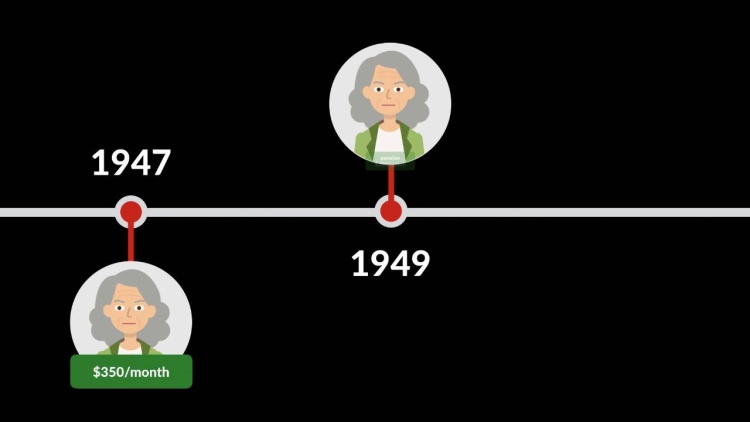Feinberg v. Pfeiffer Co.
Missouri Court of Appeals
322 S.W.2d 163 (1959)
- Written by Megan Petersen, JD
Facts
Feinberg (plaintiff) was an employee of Pfeiffer Co. (defendant) for 39 years. Feinberg acquired significant amounts of stock during her tenure and received large bonuses in addition to her salary in her later years of employment. Two years before her retirement, Pfeiffer’s board of directors adopted a resolution designed to thank Feinberg for her years of service to the company. Her salary was increased from $350 per month to $400 per month. Upon retiring, Feinberg would be paid $200 per month for life. The terms of the resolution did not change Feinberg’s ability to retire or leave her position at will, however, or Pfeiffer’s ability to discharge her at any time. On the day the resolution was passed, Feinberg was informed by Pfeiffer’s president of her new salary increase and lifetime pension. Feinberg then continued her employment with Pfeiffer for an additional two years, at which time she retired. She immediately began receiving payments of $200 per month pursuant to the resolution. A few months after Feinberg’s retirement, Pfeiffer’s president died and was succeeded by his widow and then his son-in-law. Both successors viewed the payments to Feinberg as unnecessary gifts and ultimately decided to reduce the payments to $100 per month. Feinberg declined to accept the reduced amount and brought suit to enforce the former Pfeiffer president’s promise. The trial court ruled for Feinberg and awarded damages. Pfeiffer appealed.
Rule of Law
Issue
Holding and Reasoning (Doerner, Comm’r)
What to do next…
Here's why 907,000 law students have relied on our case briefs:
- Written by law professors and practitioners, not other law students. 47,100 briefs, keyed to 996 casebooks. Top-notch customer support.
- The right amount of information, includes the facts, issues, rule of law, holding and reasoning, and any concurrences and dissents.
- Access in your classes, works on your mobile and tablet. Massive library of related video lessons and high quality multiple-choice questions.
- Easy to use, uniform format for every case brief. Written in plain English, not in legalese. Our briefs summarize and simplify; they don’t just repeat the court’s language.





